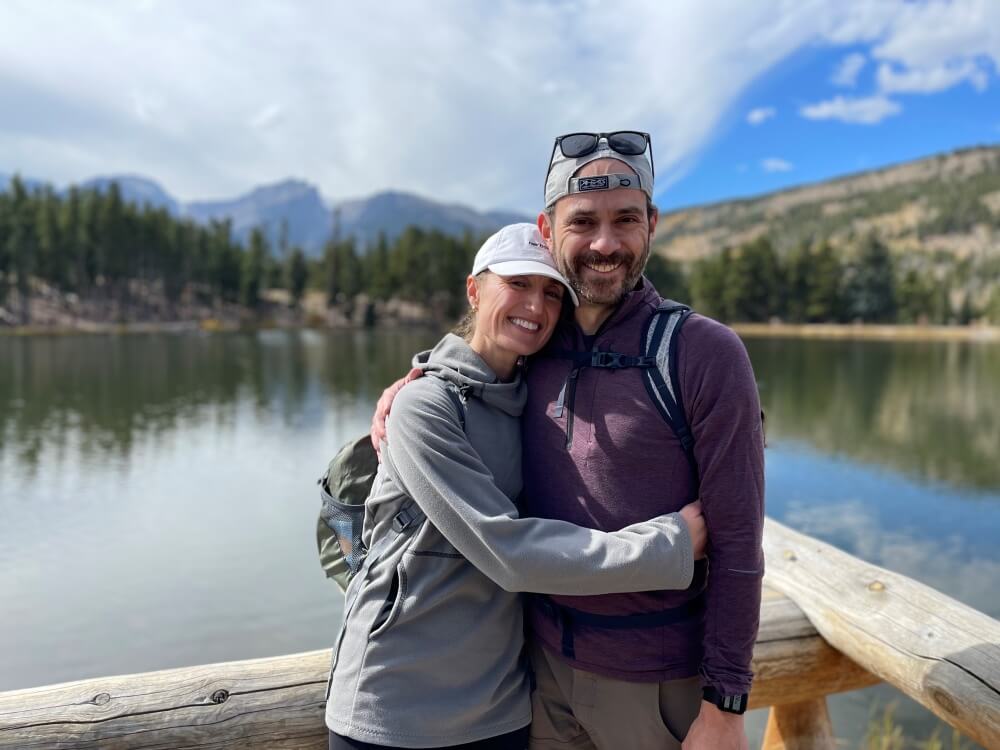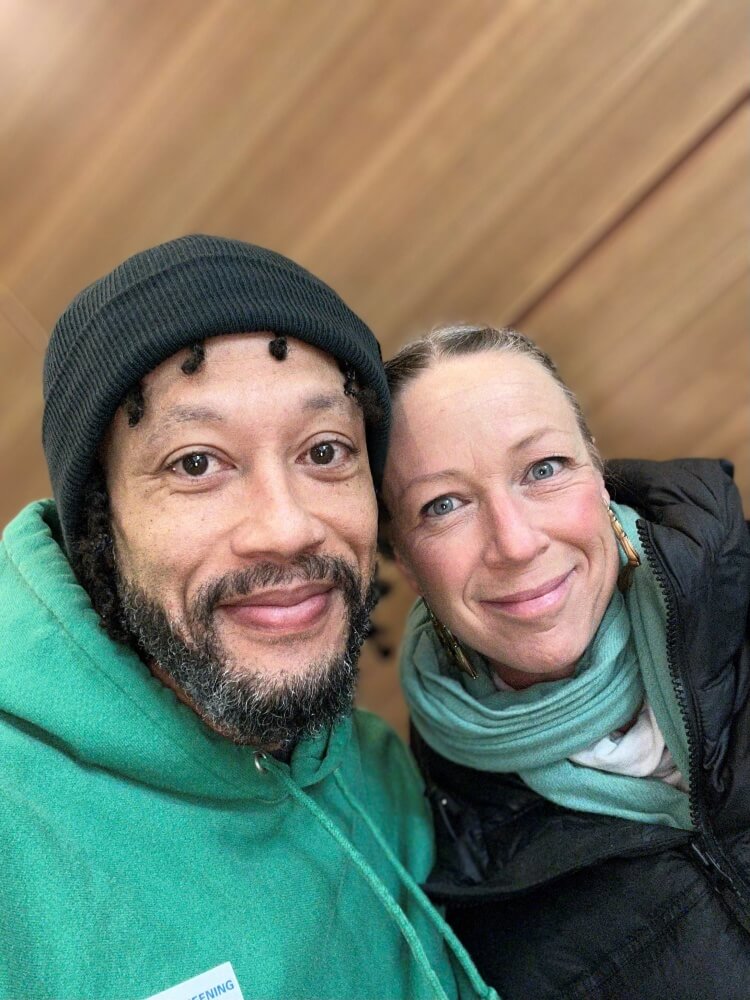For close to a year, Melanie Spears had been experiencing abdominal pain and constipation. As an Army veteran who had served in Afghanistan, she was used to pushing through adversity — so she tweaked her diet and dealt with what doctors diagnosed as irritable bowel syndrome. Only after microscopic blood samples in her stool led to a February 2022 colonoscopy did Spears learn her true diagnosis: colorectal cancer.

“I was shocked,” Spears says now, after surgery and six months of chemotherapy. “I had just turned 32, and was an otherwise healthy human. It turned my world upside down.”
It was a similar story for Bernardo Cuadra. The worsening constipation he was experiencing in early 2020 was not overly concerning, because he has multiple sclerosis — for which constipation is a common side-effect.
“I had been working on my diet with my neurologist, and adding more fiber, but the constipation was becoming more acute,” says Cuadra, who like Spears has received care in the Young-Onset Colorectal Cancer Center at Dana-Farber Brigham Cancer Center. “What really tipped off my neurologist was that my stools were narrowing, which indicated some sort of obstruction.”
Cuadra was referred to a gastroenterologist, and had a colonoscopy in September 2020. Like Spears, he had colon cancer requiring immediate surgery; at age 43, he was just as surprised.
Such incidents are becoming increasingly common. There has been a rapid global rise of young-onset colorectal cancer cases (those occurring in individuals under age 50) in recent decades. Oncologists fear that people in this group, who are busy with school, building relationships and careers, and other major life changes, may minimize colorectal cancer symptoms, which can include changes in bowel habits; bloody or narrower stools; frequent gas pains, bloating, fullness, or cramps; unexplained weight loss; vomiting; fatigue; or anemia.

Setting a baseline
No one is certain why colon and rectal cancer is suddenly affecting so many young people, but the Young-Onset Colorectal Cancer Center at Dana-Farber Brigham is committed to seeking answers through research while helping current patients under 50 — such as Cuadra and Spears — through all stages of diagnosis, treatment, and survivorship. At the same time, the center is focused on educating the public about warning signs and risk factors such as environmental exposure and genetics, as well as the importance of preventive measures including screening.
“One of the core missions of our center is educating both the general public and health care professionals about the rise in young-onset colorectal cancer, and about the importance of knowing the symptoms and warning signs that warrant medical attention,” says Kimmie Ng, MD, MPH, founding director of the Young-Onset Colorectal Cancer Center. “We also want people to know that colorectal cancer screening works, and everyone at average risk of the disease should start screening at age 45.”
Bryan Maule, another Dana-Farber Brigham patient seen at the Young-Onset Center, is a firm believer in more education — and understanding — around cancer symptoms and risk.

When Maule developed IBS-like symptoms in 2020, including excessive gas and bathroom trips, he figured he was developing a lactose allergy and self-treated with over-the-counter pills and a decrease in lactose-rich foods. Then he noticed blood in his stool, and his wife nagged him into going to the doctor. This led to a December 2020 colonoscopy and a diagnosis of stage IV colorectal cancer that had spread to his liver and left lung. He had just turned 40 a few months prior.
Surgery several months later at Dana-Farber Brigham, and ongoing treatment in the Young-Onset Colorectal Cancer Center, has gotten Maule’s cancer under control. And while he praises his care team there, he wishes that primary care doctors would do more to provide their patients with greater knowledge around genetic and familial risks for cancers.
“After my dad told me he had prostate cancer in 2020, and I told my doctor I wanted a PSA test, my doctor said, ‘No, you’re too young to get cancer. Don’t worry about it,’” says Maule. “Doctors need to start setting a baseline for people, even if they don’t have any symptoms, so that they can see changes later and start connecting the dots.”
45 is the new 50
Like Maule, and Ng, Tara Compehos is a firm believer in earlier colorectal cancer screening — including colonoscopies. Compehos experienced mild, intermittent constipation for two years from 2020-22, but thought it was caused by stress from work-related travel. Bloody stool and severe anemia finally led her to the doctor and a June 2022 colonoscopy. The result: a stage III colorectal cancer diagnosis.

She was 47 at the time, two years above the age of 45 that the U.S. Preventive Services Task Force recommended in 2021 for people of average risk of colorectal cancer to start regular colorectal screening exams. This replaced the traditionally accepted age of 50, and while Ng is encouraged by the revised guidelines, she emphasizes that they will only be effective if followed.
“I was pursuing treatment, because I knew something was wrong, but I really wish I had had a routine screening at 45,” says Compehos. “I believe a screening two years earlier could have caught the cancer at an earlier stage, and the concern for metastasis would be reduced.”
